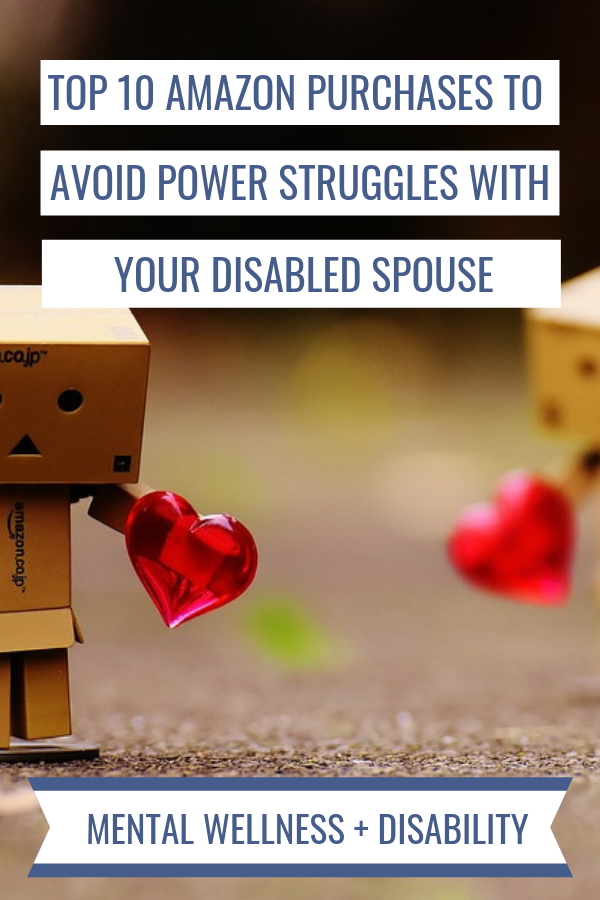Your partner has acquired a disability like brain injury or Aphasia. It may feel like your daily planner should read:
- Watch partner struggle to do something independently. Suffer silently inside as you imagine the worst possible outcome. Also visualize how much easier things would be if they’d let you assist.
- Offer to help
- Get yelled at for offering to help
- Spend rest of day embroiled in power struggles about things that don’t really matter to either of you. Periodic crying or feeling numb may occur.
- Get a horrible night’s sleep as you count the hours before you wake up to do it all over again
In my Cary, NC counseling practice, I offer therapy for family caregivers. There are many strategies that can help these struggling spouses. These include:
- Re-calibrating the relationship. Incorporating your new roles of caregiver and care-receiver without allowing these roles to define you.
- Mentally reframing situations to find appreciation for your spouse’s intentions.
- Challenging your own anxious or otherwise unhelpful thoughts.
- Being mindful of your own emotions. Understanding that decision fatigue and compassion fatigue are real. Your overwhelm is understandable, and you are not wrong to feel how you’re feeling.
But sometimes, you just want something tangible that demonstrates your commitment to ending the battles.
Introducing a new tool or resource can help to make it clear to your partner that you want to avoid power struggles.
Here are the tools that I love to suggest to my care-giving clients who want to stop engaging in power struggles.

Items to minimize nagging reminders
My clients who are caregivers often lament and resent how much time they spend reminding their spouse to do certain things. Going to the bathroom regularly is a common one. So is taking medications as scheduled.
Here’s how it usually plays out:
The caregiving spouse wants to avoid embarrassment or hassle for their partner. They recommend trips to the bathroom often. The partner with a disability is tired of feeling nagged. They make a point to hold their bladder for as long as possible.
Then they’ll inevitably have a powerful urge to go at an inopportune moment. Maybe while driving on the highway, or at the checkout counter of the grocery store. They’ll make it to the bathroom with just moments to spare.
The caregiving spouse, who resents the unnecessary crisis, will double down on offering reminders to go. Both parties dig in, and a perpetual power struggle is born.
Reminder watch
A reminder watch is a great tool to provide a non-verbal prompt that it’s time to do something important (take a medication, do a PT exercise, go to the bathroom, etc.).
This watch can be set to provide audible or vibrating alerts at up to 8 times per day. The vibrating alerts are strong enough to be felt even during sleep for many of my clients. But, they are quiet enough to not be noticed by others in social settings.
Medication organizer
I am always surprised by how many of my clients take their medications directly out of the bottle. It is frustrating for caregivers to empty the bottle and recount its contents if they suspect that their loved one missed a dose.
I love suggesting that couples get a weekly pillbox for the partner who has a disability. I recommend that they set aside a routine time each week to fill the pillbox together. This allows the couple a check-in time each week to talk about their plans and needs for the week ahead.
Amazon Echo
Like a vibrating watch, an Amazon Echo can set reminders throughout the day. True, it doesn’t offer the portability or discretion that a vibrating watch does. But your partner can use the Echo in other ways to develop independence. This helps to prevent power struggles.
Many caregivers grow weary of their loved one asking the same questions many times. What time is it now? When is our dinner reservation? What time is my speech appointment? If you sync your calendar, your partner can direct their questions to an Echo device. Your loved one can also use an Echo to listen to audiobooks, play music, call an Uber, order a pizza, and much more.
Items to foster independence
Caregivers are often exhausted by the physical strain of aiding in ADL’s such as dressing and personal hygiene. Their loved ones are embarrassed and dejected that they need help with such basic tasks.
It’s a win-win to introduce tools that allow the rehabilitating spouse independence. There’s no more struggle over how the caregiver helps, or if they should help at all. Tasks get completed with less physical strain. The partner who has a disability gets to feel pride in having done things for themselves.
Here are a few of my favorite such products:
Hair dryer stand
This is a great tool regardless of whether your loved one has had an arm amputated, or has lost function due to a stroke or other injury. It’s also a good option for those who simply feel fatigued, and will appreciate having one less physically demanding task as part of their getting ready routine.
Sock donner
There are many options for sock donners, but I especially like the stand nature of this one.
Many other sock donning devices require the user to pull upward with both arms with equal strength. My client’s who have limited strength or flexibility in their arms have found this model the easiest to use. They also tell me that it’s great for compression socks, which an be difficult to pull on using other models.
Button hook/zipper pull
This tool can help your loved one be able to fasten their own buttons and pull up their own zippers.
Things that can help your loved one (and you) get a good night’s sleep
For anyone recovering from a neurological event, getting adequate rest is critical. Good sleep is necessary for the brain and body to heal. Getting insufficient or non-restorative sleep can slow or hamper cognitive recovery, contribute to ongoing memory troubles, and is related to depression.
Unfortunately, for many people, sleep quality worsens after acquiring a disability.
As a caregiver, setting up the environment so that your loved one has the best opportunity to get good rest is one of the best ways that you can help fend off the irritability and sadness that can contribute to power struggles.
Blackout tape
Use stickers like these to cover the light from any television cable boxes or medical equipment in the room. Sleeping in a fully darkened room will help your loved one stay soundly asleep.
Blackout curtains
Make sure that early morning sun beams don’t cause untimely wake-ups.
Noise machine
Sleeping with a noise machine helps mask external noise, and prevents those noises from causing unwanted night wakings.
For those times when you realize that your own sadness, worry, and guilt is making the power struggles worse
5-year journal
The caregivers I see for counseling often feel overwhelming guilt.
As difficult as the demands of caregiving are, they often see ways that they have responded to their partner with disproportionate frustration and irritation.
These caregivers want to develop more patience and gratitude. But, they are also exhausted and overwhelmed, and have little time and energy to devote to changing their mindset.
When caregivers are feeling that way, I love to recommend this journal.
It’s compact enough to carry everywhere. The journal includes one prompt per day, and there is space to capture five years’ worth of answers to each prompt. The layout encourages you to keep your answers concise.
My clients love to reflect back on how their mood and outlook have changed over 5 years. It’s especially helpful for them to look back and reflect on how worries that felt immense have faded or changed over time.
I would love to hear from you!
What other products have you found that have minimized power struggles in your household? Leave a comment and share with us!
Keep reading
Other posts you may be interested in
Eight Tips to End Your Marriage with Dignity After Your Spouse Becomes Disabled
When your spouse becomes disabled, your whole world changes in an instant. The plans you’d made for the future all crumble away. Suddenly, your life feels like an endless stream of doctor’s appointments and therapy groups. It may feel like you know longer really know...











